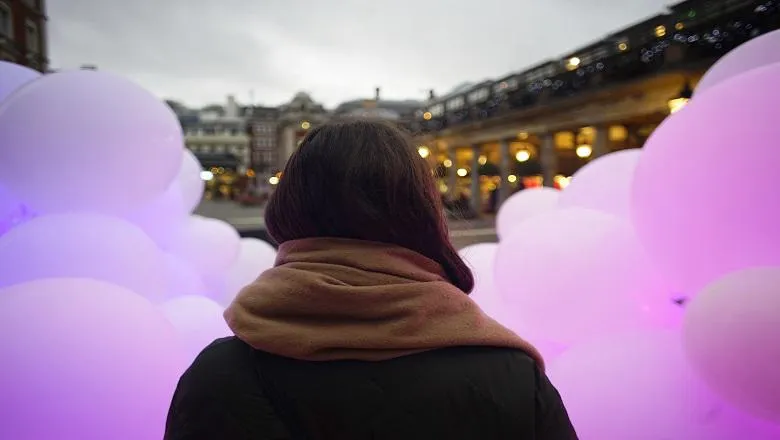It’s great to see campaigners, businesses and academics collaborating on creative ways to help the public understand the dangers of air pollution and encourage them to take action.
Sadiq Khan, Mayor of London
14 January 2020
'Pollution Pavilion' in Covent Garden uses King's data to highlight air quality challenge
King’s and environmental charity, Hubbub, have created an immersive and interactive installation to raise awareness of pollution levels in London’s air.

The #AirWeShare project was created by Hubbub together with partners including the ‘Climate and Cities’ artist collective and researchers at King’s who provided the air pollution data.
The interactive display features huge balloons that change colour to reflect annual Nitrogen Dioxide (NO2) data drawn from King’s five London Air Quality Network stations.
The large air balloons change colour from light blue to represent the cleanest areas to deepening pink for readings above legal limits for toxic nitrogen dioxide.
The Mayor added that the installation is an example of ‘creative ways to help the public understand the dangers of air pollution and encourage them to take action.’
7.9 million Londoners – nearly 95 per cent of the capital’s population – live in areas that exceed global limits for PM2.5 pollution particles by 50 per cent or more annually. On 18 March 2019 London had already breached European and UK PM10 limits for the entire year.
Across the UK, almost 2,000 locations across England, Wales and Northern Ireland have levels of air pollution that exceed the WHO’s guidelines.
Supported by Grosvenor Britain and Ireland, the interactive ‘Pollution Pavilion’ features buttons which passers-by can press to compare data on annual air quality data gathered at the five monitoring stations.
The installation will be on display in Covent Garden until January 26, and will move to Grosvenor Square later in the year.
Air pollution is a grave risk to human health. Installations like this play an important role in raising interest and understanding the air pollution challenge
Professor Frank Kelly, Head, Department of Analytical, Environmental and Forensic Sciences at King’
